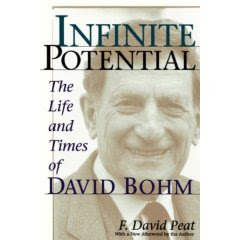
When I opened my new guidebook at random, of all things, it happened to fall on a page listing an alchemical museum. I was delighted at the thought of visiting on my upcoming trip to Prague what was billed as the only alchemical museum in the world. Yet when I looked a second time I saw it was closed for the summer. Instead I had to satisfy myself with rereading an article on alchemy by physicist Wolfgang Pauli I had found very thought provoking. He uses the work of Johanus Kepler as a lens through which to view the transition from alchemy to the classical scientific perspective.
 Pauli is best known for his work on the spin of elementary particles. As a particle physicist he grappled closely with the wave particle duality. He also was a patient and collaborator of Carl Jung. He worked with Jung to integrate the intuitive, imagistic, and feeling material that came through his dreams with his much stronger thinking side. Like Jung, he came to feel that both mind and matter were manifestations of the same primary material or force prior to both. The article called "The Influence of Archetypal Ideas on the Scientific Theories of Kepler" appears in a volume with an essay of Jung's on synchronicity. The book is entitled The Interpretation of Nature and the Psyche and was first published in 1955.
Pauli is best known for his work on the spin of elementary particles. As a particle physicist he grappled closely with the wave particle duality. He also was a patient and collaborator of Carl Jung. He worked with Jung to integrate the intuitive, imagistic, and feeling material that came through his dreams with his much stronger thinking side. Like Jung, he came to feel that both mind and matter were manifestations of the same primary material or force prior to both. The article called "The Influence of Archetypal Ideas on the Scientific Theories of Kepler" appears in a volume with an essay of Jung's on synchronicity. The book is entitled The Interpretation of Nature and the Psyche and was first published in 1955.Kepler (1571-1630) was a devout Christian with mystical tendencies as well as an important figure in the history of science. Converted to the Copernican heliocentric universe early in his career by his tutor, he became obsessed with proving that the planetary orbits were circular. He was strongly influenced by, among other things, neo-Platonic philosophy, which explored the harmonious mathema
 tical relationships behind music and tried to generalize these to nature as a whole. Kepler saw the Divine in the regularity of geometry and saw the cosmos as what might be called Divine Geometry. The sphere was for him the most perfect geometric form. He felt its harmonious proportions encoded the Triune Christian God (with the Son standing for Creation), the relationship of the soul to the body, of God to the human soul, and, at least early on, of the sun to the planets. (The picture is a model of Kepler's early view of the solar system.) He thought the soul responded instinctively to the harmonies of the sphere because, as Pauli puts it, by virtue of its circular form [it] is an image of God, in Whom these proportions and the geometric truths following therefrom exist from all eternity. " Below are a few passages from Harmonices mundi, Kepler's book on "the harmony of the worlds."
tical relationships behind music and tried to generalize these to nature as a whole. Kepler saw the Divine in the regularity of geometry and saw the cosmos as what might be called Divine Geometry. The sphere was for him the most perfect geometric form. He felt its harmonious proportions encoded the Triune Christian God (with the Son standing for Creation), the relationship of the soul to the body, of God to the human soul, and, at least early on, of the sun to the planets. (The picture is a model of Kepler's early view of the solar system.) He thought the soul responded instinctively to the harmonies of the sphere because, as Pauli puts it, by virtue of its circular form [it] is an image of God, in Whom these proportions and the geometric truths following therefrom exist from all eternity. " Below are a few passages from Harmonices mundi, Kepler's book on "the harmony of the worlds."... the movement of a point located in the center [of the sphere] to a single point on the surface, represents the first beginning of creation, emulating the eternal generation of the Son in that the center flows out towards infinitely many points of the whole surface, which, under the rule of the most perfect equality, is formed and described by infinitely many lines; and this straight line is, needless to say, the element of corporeal form.
The point spreads itself out over this extension so that point and surface are identical, except for the fact that the ratio of density and extension is reversed. Hence there exists everywhere between point and surface the most absolute equality, the closest unity, the most beautiful harmony[literally: breathing together!], connection, relation, proportion, and commensurability. And although Center, Surface, and Distance are manifestly Three, yet they are One, so that no one of them could be imagined to be absent without destroying the whole.
...the circle beautifully fits into the intersecting plane (of which it is the circumscribed limit) as well as into the intersected sphere by way of a reciprocal co-incidence of both, just as the mind is both inherent in the body, informing it and connecting with corporal form, and sustained by God, an irradiation as it were, that flows into the body from the divine countenance; whence it [the mind] derives its nobler nature.
Alas poor Kepler, working with the careful astronomical data collected by Tycho Brahe, found that the planetary orbits are not circular. However his commitment to geometry had not failed him since he eventually was able to show that they are elliptical. He also determined that a planet swept out equal areas of its orbit in equal time periods (click for an animation of Kepler's 2nd Law. Finally he recognized the mathematical relationship between the (mean) distance of a planet from the Sun and the size of its orbit. By doing so he found a much more complex harmony in nature, which finally enshrined the sun at the center of the universe. Kepler's work was essential to the formulation of the law of gravity by Newton, who lived from 1643 to 1727.
The final part of Pauli’s article explores the vitriolic controversy between Kepler and his contemporary Robert Fludd, a practitioner of alchemy.
Kepler's understanding of a rational universe ultimately grounded in the harmonies of mathematics collided with the traditional alchemical view based on a “archaic-magical” apprehension of nature in which boundaries between the real and the symbolic were completely absent. Like Kepler, Fludd understood the Divine to be reflected in the cosmos, yet much more dimly. Thus the relationship between the Divine and his creation was not harmonious for Fludd and other alchemists. They saw a cosmic struggle between form as the light principle, and matter, or darkness, which dwells in the earth. This struggle could only be redeemed by the alchemical process, which releases from matter its latent light and by the same token transforms the alchemist. The pictures below, what Fludd called "hieroglyphic figures," demostrate his view of the cosmos.

Pauli writes, "Fludd never distinguishes clearly between a real, material process and a symbolical representation. Because of the analogy of the microcosm to the macrocosm the [al]chemical process is indeed at the same time a reflection of the whole universe.... After the withdrawal of the formal light principle matter remains behind as the dark principle, though it was latently present before as a part of God…. In the middle, the sphere of the sun, where these opposing principles just counterbalanced each other, there is engendered in the mystery of the [al]chymic wedding the infans solaris, which is at the same time the liberated world soul."

Quantitative measurement has no role in, and was indeed a threat to, Fludd's understanding of the universe. Pauli quotes Fludd's spirited attack on Kepler's Harmonicies mundi and defense of the alchemical approach.
...What he has expressed in many words in long discussions I have compressed into a few words and explained by means of hieroglyphic and exceedingly significant figures, not, to be sure, for the reason that I delight in pictures (as he says elsewhere), but because I…had resolve to bring together much in little and, in the fashion of the alchemists, to collect the extracted essence, to reject the sedimentary substances, and to pour what is good into its proper vessel; so that, the mystery of science having been revealed, that which is hidden may become manifest; and that the inner nature of the thing after the outer vestments have been stripped off, may be enclosed, as a precious gem set in a gold ring, in a figure best suited to its nature---a figure, that is, in which its essence can be held by eye and mind as in a mirror and without many-worded circumlocutions.
For it is for the vulgar mathematicians to concern themselves with quantitative shadows; the alchemists and Hermetic philosophers, however, comprehend the true core of the natural bodies.
...I contemplate the internal and essential impulses that issues from nature herself; he has hold of the tale, I grasp the head; I perceive the first causes, he its effects.
Kepler answers:
If you know of another mathematics (besides that vulgar one from which all those hitherto celebrated as mathematicians have received their name), that is, a mathematics that is both natural and formal, I must confess that I have never tasted of it, unless we take refuge in the most general origin of the word...and give up the quantities. Of that, you must know, I do not speak here. You, Robert, may keep for yourself its glory and that of the proofs to be found in it---and how accurate and how certain those are, that, I think you will judge for yourself without me. I reflect on the visible movements determinable by the senses themselves, you may consider the inner impulses and endeavor to distinguish them according to grades. I hold the tale but I hold in my hands; you may grasp the head mentally, though only, I fear, in your dreams. I am content with the effects, that is, the movement of the planets. If you shall have found in the very causes harmonies as limpid as are mine in the movements, then it will be proper for me to congratulate you on your gift of invention and myself on my gift of observation---that is, as soon as I shall be able to observe anything.
Pauli points out that Kepler, a transition figure, overstates the empirical impetus behind his ideas. Pauli is also unwilling to side completely with the quantitative mode that Kepler defends, lamenting what was lost in the transition to the classical science that was to come. (Even thought Newton was a devoted alchemist, he kept his scientific work and writing separate from his alchemical concerns.)
Whereas as Kepler conceives of the soul almost as a mathematically described system of resonators, it has always been the symbolical image that has tried to express, in addition, the immeasurable [emphasis added] side of experience which also includes the imponderables of the emotions and emotional evaluations. Even though at the cost of consciousness of the quantitative side of nature and its laws, Fludd’s "hieroglyphic" figures do try to preserve a unity of the inner experience of the "observer" (as we should say today) and the external processes of nature, and thus a wholeness in its contemplation....
Pauli felt psychology as well as physics was beginning to bridge the gap between the quantative and qualitative that Kepler's work helped bring about. My sense is that more than 60 years after Pauli's article, this important coming together of the quantitative and the qualitative is still just beginning.














5 comments:
There are two facets I want to cover, and a 'pointer'.
The first is parallel modes of thinking. Alchemy , religion, art -- and science -- and different modes, or 'reality systems': paradigms and methodologies for 'knowing' something. This is a bit like how a bird, or an ant, or a carpenter, or a forester, or an artist would conceive of a tree (none of those how tree 'conceives' of itself),
all working in different modes, and all with different 'purposes' -- i.e., yielding results. All are limited, of course; I recommend
engaging in a variety of modes simultaneously. Of course, we can't completely separate such modes -- and we would not want to since we want the opportunity to inform one mode with the others, where applicable, much as we can use logic to inform emotion, and vice versa, and we don't want to get stuck in any one mode.
That's a problem: a scientist can't depend on alchemical knowledge for a scientific conclusion, even if he lets it 'point to a path' for
investigation, and an alchemist (or sorcerer, or priest) can reach
alchemical conclusions by relying solely on science: being informed
and seeking consistency among modes is valid, but not letting an
alien mode of thinking take over. The key is to understand the limits of a mode, and a system: science doesn't deal with magic, religion or alchemy in native terms, and translation (always imperfect) is needed.
This brings me to the second facet: subjective consciousness,
particularly subjective self-awareness. Some people (I think Pinker is included among them) seem to say that when 'consciousness' --
cognitive processing and focusing ability -- reaches 'some level' it
can turn on itself and the biological mechanism becomes self-aware. I find this very problematic: I can see no justification for saying
there would be a difference in behavior between a creature who IS
self aware and one which acts 'as if' it is self aware. In other
words, set up some scenario and describe how Fred or Mary acts,
presumably out of self-awareness, and then comepare how *I* (meaning
you, individually), acts. *I* can describe the actions and presumed
internal states of Fred and Mary, and can do the same with myself,
but with myself, there is the subjective self awareness, which is of another category. Perhaps no person can determine in Searle's
'Chinese Speaking Computer Room' problem http://en.wikipedia.org/wiki/Chinese_room ) whether the responder is
a computer or a Chinaman, but the Chinaman would know -- and
presumable be a self-aware Chinaman (or me, if I could speak
Chinese). In that situation, however, actually being self-aware does nothing to change my behavior -- or my chances of reproducing and pasing on genes. On the other hand, I, as I am, with no ability to speak Chinese, can sit in the room contemplating my naval in a bliss
of cosmic consciousness: slef-awareness does nothing to enhance
survival or reproduction odds -- only acting in such a way, as any
sufficiently evolved mechanism might do.
It might be argued that it is more probable, more efficient, or
otherwise 'better' for an organism to 'create' actual awareness
rather than a set of behaviors which seem to simulate awareness, but this inserts some very messy elements: the assumption that we can describe and define a difference between actual awareness and simulated awareness as shown through behavior. (And, of course, if you ask a dead computer simulating awareness if it really is aware, of course it must say yes or would fail in the simulation). Another
problem is that subjective self-awareness is inherently a singularity -- perhaps a singularity for every person, but no one can ever duplicate MY self-awareness: at best they can contemplate THEIR self-awareness and presume it is like mine, and that mine really exists, when all they have to go on is my behavior and responses: perhaps THEY (you) are the only self-aware being in existence and everyone else is a simulation. Such a hypothesis is not falsifiable, nor reproducible -- and not science. There is also the difficulty of Occam's Razor: there is no need for a scientific hypothesis of the existence of self-awareness since all data can be more simply explained as just the existence of behavior which could be explained by awareness -- the introduction of unneeded metaphysical element
much akin to saying 'God caused the universe". I mention is passing hearing a few times (including from Dennet, if I remember) that consciousness must be conscious OF something, but I understand that to be a limited and misleading definition of consciousness.)
What we have then, is a mixing of cognitive modes. A scientific
search for the nature of consciousness is fruitless and pointless -- just as a scientific search for the existence of God is. Perhaps some 'mixed mode' system can be developed -- perhaps we should call it
'metaphysics' :-D -- combining logic with emotion, or intuition, or religion,, for examples, but we best not call that science. And this is the 'pointer' I mentioned in my opening sentence: the question of how and when cognitive modes might be -- should be -- integrated either to mutually inform or form a super-system. I should also mention that subjective self-awareness does virtually nothing to
inform us regarding religious systems or doctrines, which is yet
another category: in broad terms, the existence of a 'spirit world',
a realm of non-physical existence, does not need to assume the
existence of a god -- or even subjective consciousness extending
beyond the individual who is subjectively aware: one singularity does
not imply others. Perhaps, since *I* am subjective aware then *I* am god and all else simply dreamlike elements of my own mind; how could I prove otherwise?
For me, the bottom line is I just don't know. I am trapped in
solipsism regardless of any working assumptions I make. Perhaps my self-awareness IS the purely accidental result of my physical brain and nervous system, and perhaps that awareness will vanish upon my demise, but science does not and can not definitively inform my thinking in that area -- it's out of category -- extra-systemic -- 'amodal'. What, then, should a system of metaphysics or the like which can handle such extended methodology and elements look like? Science is not a closed system, but where does it validly open into?
BluePilgrim
I agree with much of what you say. Yet I approach the qualitative/ quantitative issue a bit differently. Like Pauli and Jung I tend to believe in some kind of unified something behind mind and matter, which is prior to both. Here are some musings:
I feel that our thought ultimately is a reflection--- most of the time only a dim one---of this underlying something. What makes science different to me is the nature of the "call and response" we engage in--- with the response what we refer to as "experiment." Yet more and more I see the important moments in science largely as acts of intuition, which for a variety of reasons, including apparent agreement with future observations, eventually change the way others think. Thus in some sense the most critical step, especialy after the fact, is the intuition itself. Yet this is thought by many to be outside the realm of science. What I am saying is that the "call" of the call and response--what you term "the pointer," is of utmost importance. Without it, there would be no science. Another way to put what I am saying is that the difference between science and measurement might be when the intuitive and quantitative do come together. When this happens, I suspect our thought is a better reflection of the underlying unity I (much of the time) sense exists prior to mind and matter.
What category-match can be between science and measurement?
To begin with: what should we call 'science'? maybe the up-to-date portion of the epistemically accessible 'reality' (what my rationalist mind deems applicable to 'exist') AS interpreted into our mnindset? Well, that would be 'knowledge-base', and it requires some adjusting
and ordering to make it 'science' - still in our interpretation.
Measurement, however, IMO is comparison of one firment to other
figments as already identified. Numbers (as David Bohm said) are
human inventions, 'nature' does not apply them, so 'measures' are
also human figments. But we based a "science" on that, and a pretty
effective technology deduced from it. So the 'match' between the two
is 'humanly reduced' into topical views. What I call: reductionistically.
JM
You are absolutely correct. What I took out my comments before I sent them was the notion that we design the experiments and interpret the results through our own human perceptual filters. (Also the apparent of "apparent agreement with future observation" was italicized but did not come out that way because of the limitations of the list format) Yet I think our measurements and our numbers, guided by our intuitions, are probes of something and thus they do give indications--- they are pointers --- to something. Whether ultimately this something pointed to in any given experiments is interesting or not is another question.
Yes we are always limited by our filters, but some people allow and even delight when something new comes in---whereas others set their filters to only confirm what they already believe. I think this is why Kepler appeals to me so much, just as much as the power of his vision of the harmony of nature. To the extent that science is a technique to move beyond what we think we already know, I kind of like it (and to the extent reduction supports this process of moving beyond--- it's okay with me). Also it gives us a chance to look at and to play with what it means to know something.
As to that place before the split between mind and matter--- That will be the day!
Best Lois
Objection!
Lois: I am NEVER "absolutely correct". Maybe sometimes I hit the head on the nail.
Experiments are in your writeup a bit optimistic: I would start with the tiny little fragment we so far discovered and within that your restrictions. I experimented for 1/2 century and was deemed successful. It is a laugh. All
my previous experiments were obsolete in the views of later experiences. (Now I AM NOT SPEAKING about 2500 years...)
The more important negative is the explanation, adjusted within the ongoing stupidity of our epistemic ignorance. Physics still tackles the 300 year old obsolescence and math (and philosophy) the 2500 yo.
I am rather wrong.
I salute your fresh mind
John M
Post a Comment